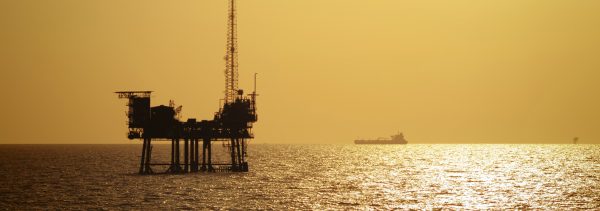Ghana: The world’s next oil hotspot
- Posted on
- Comment
 Crude oil could turn Ghana into one of the fastest-growing economies in the world. This seems to be the message coming from analysts as the West African country is set to start benefitting from the development of its largely untapped oil wealth.
Crude oil could turn Ghana into one of the fastest-growing economies in the world. This seems to be the message coming from analysts as the West African country is set to start benefitting from the development of its largely untapped oil wealth.
There are only three fields in Ghana that are already producing, out of 21 license blocks. Of these, 14 are in ultra-deep waters, which makes their development costlier, and five are in shallow waters. Eight of these blocks were discovered over the last five years and there may be more coming: Exxon, Eni, Anadarko, and Tullow Oil are among the companies with a presence in Ghana.
The country has a democratically elected government headed by a president that is all for foreign investment and all against foreign aid, which is a good combination for investors in Ghanaian oil. Of course, prices are higher, too, which should provide further motivation for oil companies to enter this newcomer on the international oil scene.
Until recently, Ghana was involved in a maritime border dispute with neighbour Ivory Coast, but the dispute has been settled, which should provide a boost for exploration and production activity that has been paralyzed for several years while the dispute was ongoing.
To date, the largest oil field in the country is Jubilee, with reserves estimated at 1.2 billion barrels of crude. Another major project is the TEN block made up of three fields with reserves of 240 million barrels of oil. Both fields are operated by Africa-focused UK-based Tullow Oil and last year they produced a combined 145,600 barrels daily. This constituted the bulk of the country’s 167,000 bpd in total daily oil production.
Tullow began drilling new wells at both blocks earlier this year, but average daily production from the two fields is seen at 139,800 bpd. Going forward, Jubilee is seen yielding between 150,000 and 160,000 bpd of crude.
Exxon earlier this year struck an exploration deal for the Deepwater Cape Three Point field, buying an 80-percent stake in the field. Though the company disclosed no details about the field’s reserves, the fact that it is betting on it with such a large stake suggests these must be considerable enough.
Exxon was the first to ink a contract for an oil field development in Ghana after the maritime border dispute ended, but it was not the last. Norwegian Aker Energy followed on its heel, signing a US$100-million deal to buy Hess Corporation’s Ghanaian business. This includes a 50-percent interest in the Tano Cape Three Points field, with reserves estimated at 550 million barrels of oil equivalent, with potential reserves of another 400 million barrels.
Italy’s Eni, a company with a long-standing presence in Ghana, last year stepped up production at the Offshore Cape Three Points block comprising three fields with combined reserves of 500 million barrels of oil and 40 billion cubic meters of natural gas.
All these developments mean more oil coming on stream, driving higher government revenues at a time when climate change and urbanization are threatening Ghana’s staple export: cocoa.
This year, the Ghanaian economy is forecast to grow by 8.3 percent – that’s an upward revision from the 6.8 percent stipulated in the 2018 budget. The share of oil will likely continue to be low as part of GDP relative to gold, for example, but it will start growing. The next challenge for the West African economy could be to avoid the oil curse that has sank so many economies that are over-reliant on the commodity.
Author: Irina Slav for Oilprice.com










 (Selorm) |
(Selorm) |  (Nana Kwesi)
(Nana Kwesi)